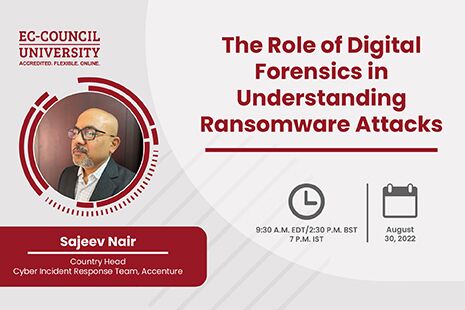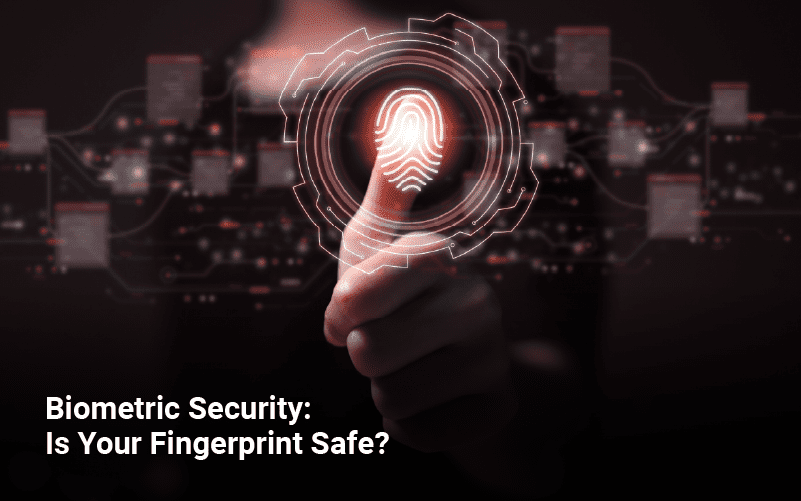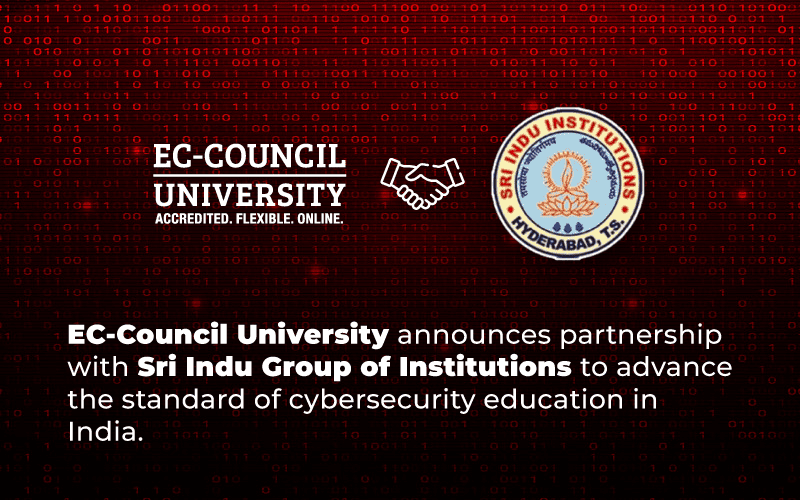Date: August 30, 2022
Time: 9:30 a.m. EDT/2:30 p.m. BST/7 p.m. IST
Topic: The Role of Digital Forensics in Understanding Ransomware Attacks
Abstract:
In a 2021 interview with The Wall Street Journal, FBI director Christopher Wray said the agency had investigated nearly 100 types of ransomware and compared the current spread of cyberattacks with the challenges posed by the 9/11 terrorist attacks. With the expansion of the Internet of Things and rapid migration of applications and data to the cloud, large-scale enterprises are at high risk of cyberattacks.
These escalating cyberthreats mean that organizations and government agencies need digital forensics experts to identify and investigate cybercrimes. Digital forensics is the process of preserving, processing, and storing digital evidence to be presented in a court of law or other investigation. Methodologies like the Cyber Kill Chain are critical to data recovery efforts and can help security professionals trace the stages of a cyberattack.
Since ransomware attacks can affect businesses’ critical infrastructures and are rapidly growing in sophistication, digital forensic investigators need to continually improve their skills and maintain a solid understanding of system vulnerabilities. This webinar will explore how digital forensics practices can be used to mitigate ransomware threats and secure data, including the latest ransomware attack variants and mitigation strategies.
Key takeaways:
- How ransomware differs from other threats from a digital forensics perspective
- How to build a forensic roadmap capable of identifying ransomware attacks
- Digital footprinting methodologies for ransomware attacks
Speaker:
 Sajeev Nair, Country Head—Cyber Incident Response Team, Accenture
Sajeev Nair, Country Head—Cyber Incident Response Team, Accenture
Bio: With over 25 years of experience in the telecom, media, and IT services industries, Sajeev Nair is an accomplished leader who has helped develop cybersecurity, incident response, and digital forensics practices at multiple organizations. His extensive work includes stints in both the United States and India. As country head for Accenture’s Cyber Incident Response Team, he leads regional cyber incident response for India, the Middle East, and Africa and is responsible for responding to cybersecurity incidents affecting Accenture and Accenture clients.
Sajeev holds a Bachelor of Engineering in telecommunications engineering as well as several industry certifications. He has published multiple papers and open-source tools in the cybersecurity domain and enjoys training and mentoring new entrants in the cybersecurity and incident response areas.
*Examples, analysis, views and opinion shared by the speakers are personal and not endorsed by EC-Council or their respective employer(s)








